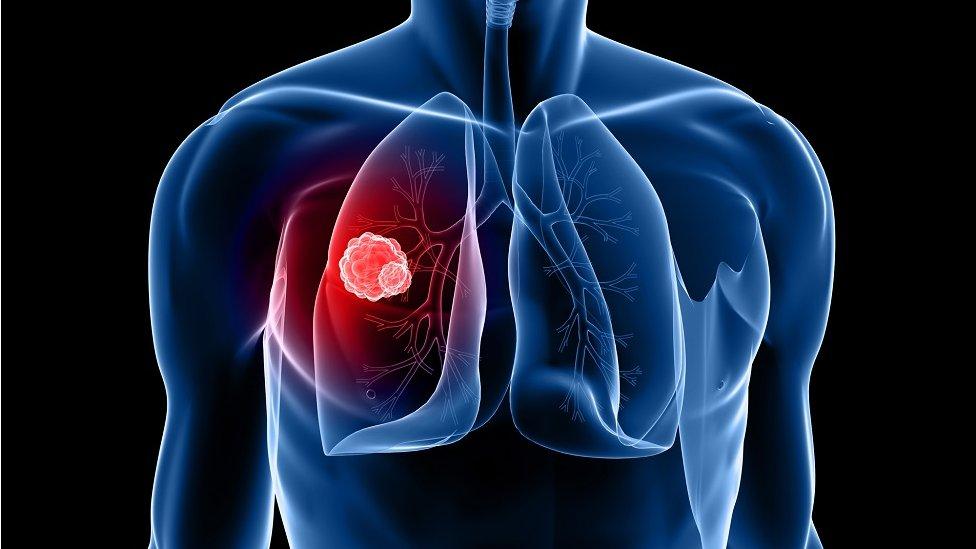Covid-19 pandemic 'lowered cancer survival rates' in NI
- Published
- comments
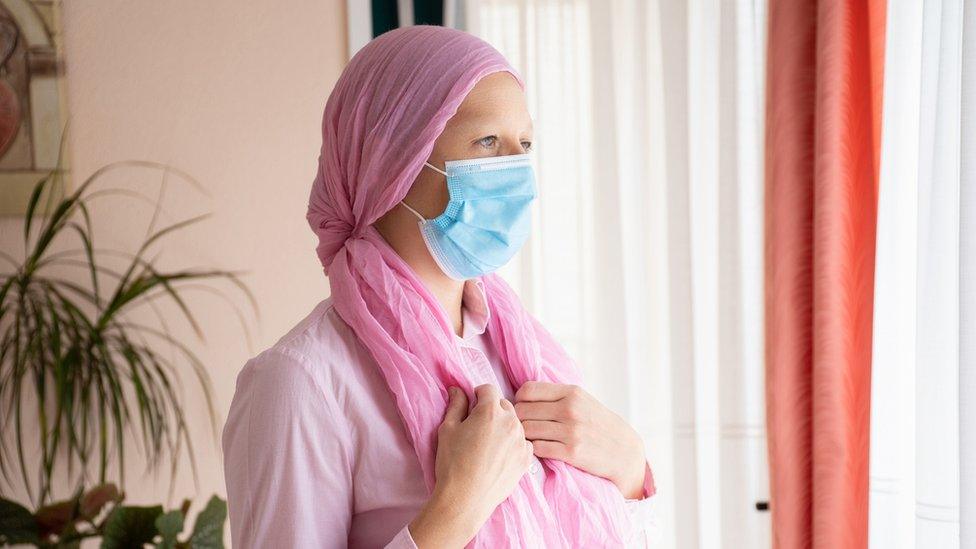
The research found a significant fall in the proportion of patients still alive one year after their cancer diagnosis
The Covid-19 pandemic had an adverse effect on how cancer patients were treated, according to research by the Northern Ireland Cancer Registry.
It looked at the pathway from symptoms through to clinical investigations, diagnosis, treatment and survival.
It found there were almost 1,000 fewer or "missing" cancer cases early in the pandemic between April and December in 2020, compared with the previous year.
The report showed greater numbers being diagnosed by emergency admission.
There was also a major impact on treatment with lower rates of surgery and radiotherapy and a significant reduction in the proportion of people still alive one year following their cancer diagnosis.
Pause of screening programmes
The Northern Ireland Cancer Registry is an organisation funded by the Public Health Agency.
Dr Damien Bennett, the registry's director, said the "impact of Covid has been stark at all levels" and what was most striking was "the stage shift".
"People are presenting at a much more advanced stage of disease," he said.
"We suspected Covid-19 would impact on cancer patients and services across the entire patient journey and have now produced good evidence to show this.
"Our work shows that, alongside about 1,000 'missing cases', there has been a shift to more advanced disease, with lower rates of surgery and radiotherapy and poorer survival one year post diagnosis," he said.
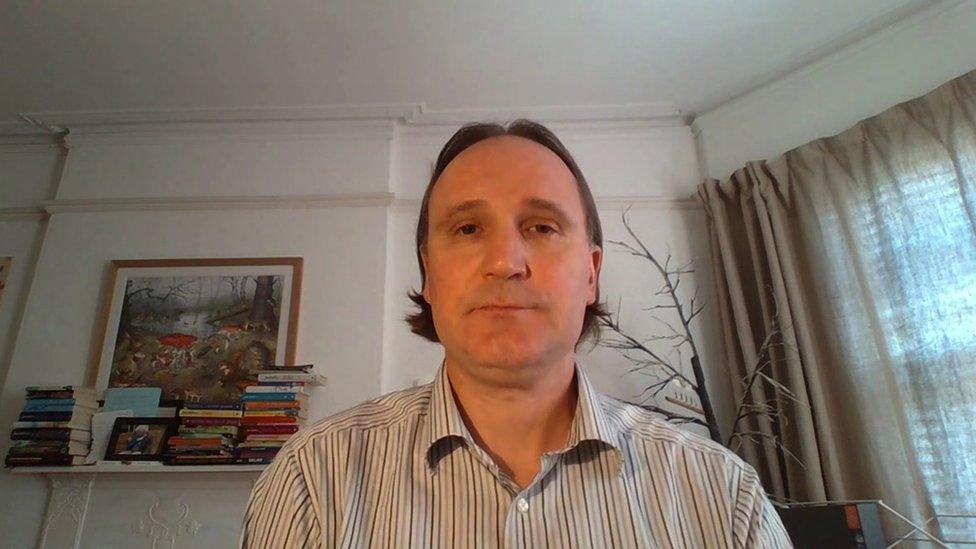
Dr Damien Bennett is the director of the Northern Ireland Cancer Registry
Dr Bennett said that was due to a number of factors; the pause of screening programmes, restricted access to healthcare services and potentially fear and uncertainty in the population.
He said that had caused "a move towards more advanced disease and the reductions in those coming in at stage one or early disease as being one of the most significant findings".
"We need to continue to monitor key cancer statistics to assess for recovery as well as trends in pathologically diagnosed cancers which have recently shown some signs of recovery," he added.
Dr Bennett said cancer awareness was important.
"Your symptoms could be nothing but they could be cancer," he said.
"Now is the time to get seen if you have any of the worrying symptoms.
"Do not delay. Do not put it off," he warned.
- Published22 March 2023
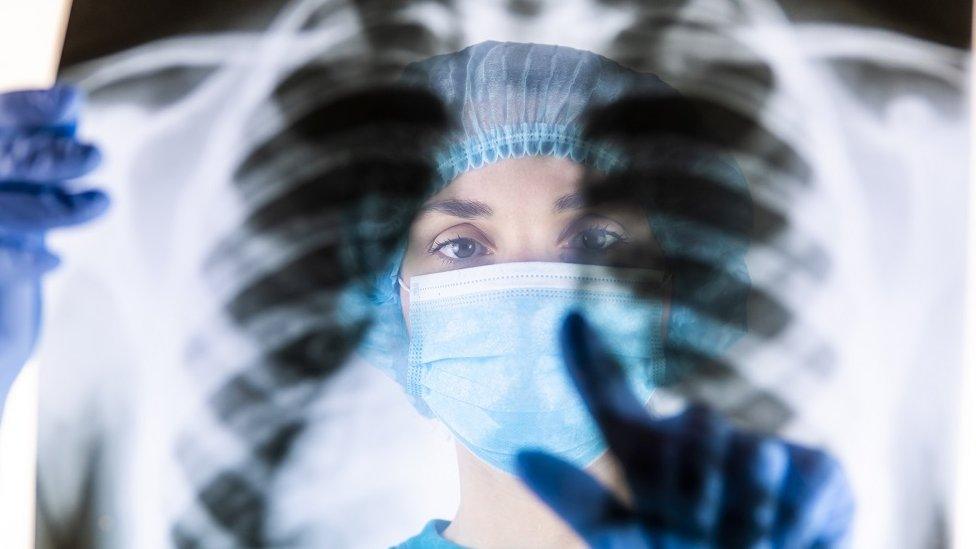
- Published29 September 2022
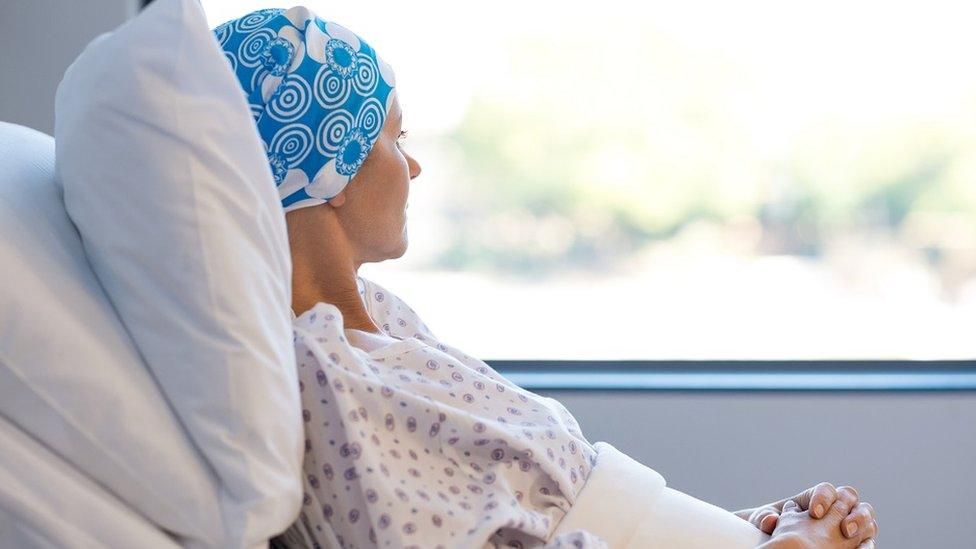
- Published15 March 2022
